15 Ways Entrepreneurs are Saving the World
When I made my list of the top 30 reasons to be an online entrepreneur, I left out the biggest one: when you become an entrepreneur, you join a group of people who are saving the world. Entrepreneurs are one of the single biggest forces of good on the planet.
If you think that’s an overstatement, then read the 15 ways entrepreneurs are saving the world below. Prepare to be awed and inspired.
#1 Entrepreneurs Create New Jobs
According to the International Labour Organization (ILO), 50 million jobs have disappeared worldwide since the financial crisis of 2008. But as governments and corporations cut jobs in the name of austerity, entrepreneurs are creating new jobs.
At the very least, each entrepreneur creates one new job. But very successful entrepreneurs, like Larry Page and Steve Jobs, have helped create tens of thousands of new jobs. Today, Google employs about 33,000 people and Apple employs about 60,000.
#2 Entrepreneurs Light Up the Darkness
More than one out of every four people worldwide lack reliable access to electricity.
But Jessica O. Matthews and Julia Silverman are changing that. Their mission started at Harvard University in 2008, when they helped to invent the Soccket – a soccer ball that absorbs energy when it’s played with and then can be used as a portable power source.
It’s an ingenious invention. But it needed a company to produce and distribute it. That’s why Matthews and Silverman founded Uncharted Play in May of 2011. With every Soccket they distribute, there’s another play-powered, eco-friendly light in the world.
#3 Entrepreneurs Solve New Problems
Businesses thrive because they’re able to solve people’s problems, but old businesses are often slow to adapt to emerging problems.
That’s where entrepreneurs come in. Startups are designed from the ground up to solve today’s problems.
Here’s an example. In the last few decades we’ve seen a huge rise in digital waste. Personal computers are polluting the environment in landfills even though they contain valuable material.
Greenback Laptops is one company tackling the problem. People send Greenback their old laptops and then the company refurbishes the computers and sells them at a profit. The best part is that Greenback donates 50% of proceeds to schools and educational foundations.
#4 Entrepreneurs Provide Free Information
“Knowledge brings power; Knowledge itself is power.”
Sir Francis Bacon
In 1996, Jimmy Wales co-founded Bomis, an online web portal featuring male-oriented content. In 2000, Wales leveraged the success of Bomis to launch a free online encyclopedia called Nupedia. But the volunteer-driven site was slow to produce content (only 12 articles written in its first year).
Wales and the Nupedia team brainstormed a faster way to generate content: creating a wiki encyclopedia. A user-curated encyclopedia? The idea was just so crazy, it might work.
Since its inception in 2001, Wikipedia has amassed 22 million articles in 285 languages thanks to a community of about 100,000 active contributors.
The resulting surge in free information has transformed the world and given unprecedented opportunity to billions of people without access to libraries and universities. As Peter Diamandis and Steven Kotler point out in their book ‘Abundance’, if a man is, “on a smartphone with Google, he has access to more information than the President [of the United States] did just 15 years ago.”
#5 Entrepreneurs Help Topple Totalitarianism
The Arab Spring is a wave of revolutionary demonstrations and protests in the Arab world that started in December 2010 in Tunisia. To date, this largely peaceful movement has ousted authoritarian dictators in Libya, Egypt, Yemen, and Tunisia.
It may not have been possible if Jack Dorsey hadn’t created Twitter in 2006. Protestors used Twitter to organize and provide real-time updates during demonstrations.
When Dorsey conceived of a social media site that only let you post 140 characters at a time, I doubt he saw it as a way of fighting political oppression. But by giving people a powerful way to communicate and connect with one another, he created a tool that has done just that.
#6 Entrepreneurs Push Science to New Frontiers
Last week on May 22nd, the International Space Station received supplies from an American shuttle – but for the first time in history, it wasn’t a NASA shuttle.
The unmanned shuttle belongs to SpaceX, a space transport company founded in 2002 by PayPal entrepreneur Elon Musk. In a time when government debt has led to reduced spending in research and development, entrepreneurs like Musk are footing the bill and creating companies that create scientific breakthroughs.
Musk isn’t alone. Larry Page joined him in financing Tesla Motors, a company dedicated to mass producing fully electric cars at an affordable price. And while SpaceX is dedicated to transport of cargo, Richard Branson is heading up sub-orbital spaceflights to “space tourists” with Virgin Galactic.
#7 Entrepreneurs Offer Affordable Loans to Small Businesses
While volunteering to help small businesses in East Africa, Jessica Jackley began interviewing African entrepreneurs about their challenges. One of the problems was a lack of capital. But while businesses back in the United States were looking for millions of dollars in start-up capital, these businesses in East Africa needed only hundreds.
Jackley saw an opportunity to make a difference. In October 2005, she founded Kiva Microloans with Matt Flannery. Kiva connects entrepreneurs all over the world with people interested in making microloans to help their small businesses.
Though the average loan is only $392.13, Kiva has distributed over $300 million in loans in the last seven years. Since Kiva’s loans are repaid an amazing 98.94% of the time, most people decide to reinvest their money once it’s paid back. This illustrates why loaning money can be many times more powerful than giving it away.
Kiva is also helping win the fight on gender equality. About 80% of Kiva’s loans go to women – many of whom live in patriarchal societies which limit the business opportunities of women.
#8 Entrepreneurs Bring People Together
Human beings are pack animals. We instinctually crave to be with one another, to understand one another and be understood. But circumstances often pull us apart.
Luckily, there’s a cadre of entrepreneurs searching for new ways to make us feel close to one another even when we’re separated by oceans.
Leading the charge is Skype, an internet phone created by Niklas Zennstr"om and Janus Friis in 2003. Not only is Skype free to use, its video and file-sharing capabilities make it a much more potent communicative tool than a traditional phone.
Every day, Skype lets grandmothers see their newborn grandchildren, business partners meet from offices in other cities, and military wives speak to their husbands while they’re abroad. In total, Skype has brought togetherness and happiness to over 663 million registered users (a figure that inspired Microsoft to acquire Skype for a whopping $8.5 billion in 2011).
#9 Entrepreneurs Start Charities and Foundations
When your companies have made you a billionaire several times over, what’s next?
For many of today’s most successful entrepreneurs, the answer is to create a charity or non-profit. It’s a way to apply their organizational experience to solving the world’s biggest problems – instead of just lining their pocketbooks further.
The best example may be Bill Gates, former CEO of Microsoft. Bill stopped selling software full-time in 2006 so he could focus on promoting global development and health as the co-chair of the Bill and Melinda Gates Foundation.
#10 Entrepreneurs Help the Artist Community
There’s a reason why the “starving artist” is a stereotype. For years, artists have had to live on scraps – often while business people get rich off of their work.
Shawn Carter (aka Jay-Z) grew up watching record companies sign up-and-coming rappers only to exploit them and leave them destitute. So in 1995 he started his own record company, Roc-a-Fella. Four years later he co-founded Rocawear, an apparel company that he sold for a whopping $204 million in 2007.
Carter is part of the growing cadre of artist-entrepreneurs who are able to use their business savvy to put money in the pockets of artists. The more entrepreneurs out there helping the art community, the more it will thrive.
#11 Entrepreneurs Encourage Local Commerce
In the last century, commerce has become increasingly international. Improved transportation technologies and low trade barriers mean that products are often sold on the other side of the world from where they’re produced.
But shipping products thousands of miles is energy inefficient. There’s also a disconcerting homogeneity to walking into a Walmart or McDonald’s anywhere in the world and being met with almost the exact same experience at every location.
Entrepreneurship, however, lends itself to local commerce and culture. If you create your own product, it makes sense to sell it at local stores. If your business offers a service, it will likely be more cost-effective to provide it to people who live in your area.
This means more local culture and less fuel used in shipping.
#12 Entrepreneurs Fund Big Ideas
Kickstarter is a crowd funding website for creative projects launched in 2008.
By July 2011, Kickstarter had already been used to successfully fund over 10,000 projects in the amount of about $60,000,000. In April 2012, The Pebble E-Paper Watch became the most highly funded project on Kickstarter when it raised over $10 million through the pledges of almost 70,000 people.
But the most amazing thing about The Pebble E-Paper Watch project is that it failed to get funding from traditional startup investors. Without Kickstarter, it wouldn’t exist. With Kickstarter, it’s thriving.
While Kickstarter is just for creative projects, other companies are following its lead to support a wider range of ideas. CommunityFunded launched earlier this year and can be used to crowd-source any type of idea, be it a creative project, a non-profit organization, or a business concept.
#13 Entrepreneurs Work towards a Global Water Solution
Almost 1 billion people do not have access to safe drinking water, 2.5 billion live without water for sanitation, and poor water quality is the second leading cause of infant mortality in the world.
Roundabout Outdoor is a private startup making a difference. They’re the creators of the PlayPump Water System, a water pump that’s powered by the play of children at school and in rural areas. Today, there are over 1800 PlayPump systems in sub-Saharan Africa and they provide clean drinking water to more than one million people.
Another example is ONE DROP, a non-profit dedicated to “supporting access to water and raising individual and community awareness.” It’s an initiative started by Guy Laliberté, who made his fortune as the founder of Cirque du Soleil. ONE DROP has given roughly 25,000 people access to water all across the globe.
#14 Entrepreneurs Make People Happier
When I think about making the world a better place, I think about big-picture stuff like non-profit organizations and global movements.
But one of the best ways to make the world better is simply to be the best version of you. If you’re happily and actively pursuing your best life, everybody around you feels it. By chasing your dreams, you’re implicitly giving your friends and family permission to chase theirs.
Since entrepreneurs are striving every day to realize their vision and make a positive impact on the world, they’re usually the type of person who infects everyone around them with energy, passion, and happiness.
#15 Entrepreneurs Provide Free Education
In the three years since Michael Dunlop founded Income Diary in 2009, over 300 articles have been published on the site. Each one was written to help educate visitors on how to make money online and each one is available for no cost.
As of February 2011, there were over 156 million public blogs in existence. While some of these were founded by people who just want to express themselves, millions of others are like Income Diary: regularly updated resources offering a free, in-depth education.
These types of blogs are usually founded by entrepreneurs who are leveraging their free content to earn money through product sales, advertisements, or donations. Thanks to these blogging entrepreneurs, I’ve become a better graphic designer, a better web developer, a better writer, a better musician, and a better video editor.
It’s amazing to think that generations to come will have access to the wealth of free education provided by these entrepreneurs – and that this virtual classroom is growing in size and quality every day.
Ready to Save the World?
I hope these stories have inspired you to think about the way that you and your business can make a positive impact on the planet. But if you’re wondering, “What’s in it for me?” then I recommend you consider the ways that entrepreneurs benefit from giving back.
I would also love to hear any ways entrepreneurs are saving the world that I forgot, so please speak up in the comment section below.
"Do Not Write Another Blog Post Until You Watch This Free Video..."
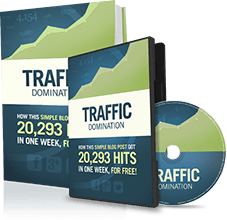
Watch this free video to learn...
- How I got over 10,000,000 people to visit my websites.
- The types of blog post that got me all that traffic.
- How to get someone else to do it for you!


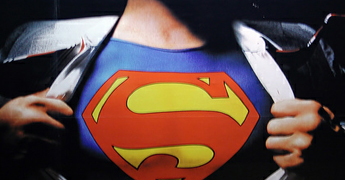

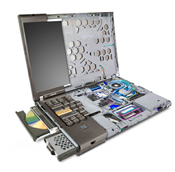

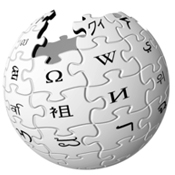

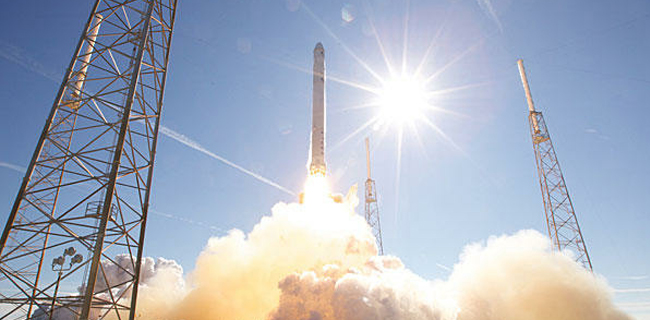
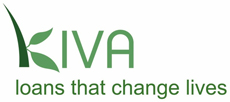
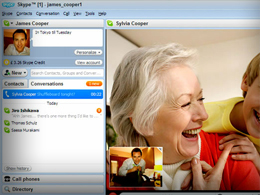

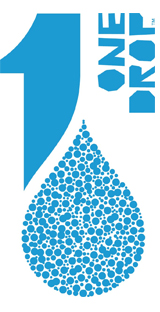

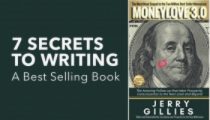
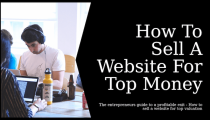

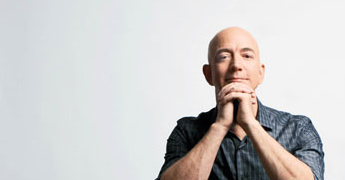


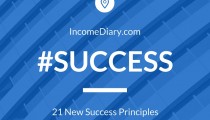

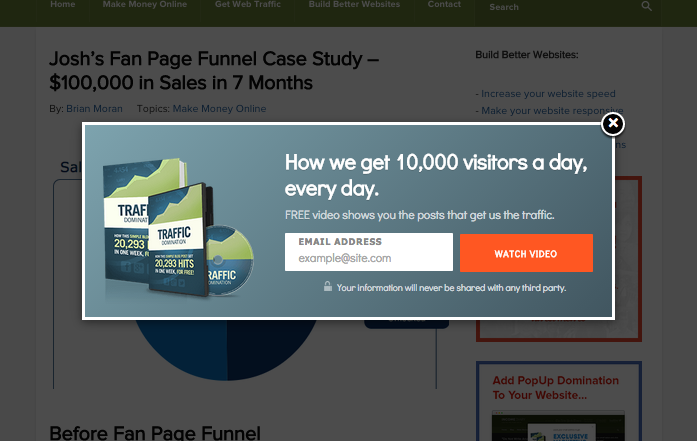
Good article but may I suggest a better example for #5 than the Arab Spring revolutions. These uprisings were laced with Marxist leaning, sharia law fundamentalists, aka radical Muslims. The results have not been more freedom for the people but less. Sharia law is particularly restrictive to woman’s rights and brutally oppressive towards the dhimmi or infidel non-believers in Islam. The Muslim Brotherhood, which has risen in Egypt for example as a result of the Arab Spring revolts have their roots in sharia and Marxism and are not exactly freedom minded in the sense that Western minds think of it. Freedom to groups like these does not have the same meaning that it does for freedom oriented Americans. Do a little research and look for the hammer and sickle flags during the marches for these uprisings and validate the above for yourself. Otherwise, the article was very inspiring.
Yes, freedom doesn’t mean the same thing in every part of the world. And no country is completely free. But after these peaceful protests, a corrupt dictator was removed from power, civil liberties like freedom of speech were restored, and Egypt had its first parliamentary elections in 30 years. I know it’s not perfect, but I stand by that as progress.
Hello Nick,
Awesome points! I totally agreed with you. Because of retire at 21 (Michael) and this site, I am launching my own website on talent kids because after reading the blogs, they fire me up. My goal is to have my website be completed and run by end of June or sooner. I want to open window of opportunity for children to be connected with similar mastermind people.
That’s great. Good luck with your site – and I’m glad we could help inspire you.
Very impressive post Nick!
I made a vow, to infect people around us with energy, passion, and happiness
Sincerely, really enjoy this post very much.
That’s a wonderful thing to do, Warren. Best of luck.
so fantastic and so innovative for real the idea of knowledge is power is 100% rig ht
Thanks, Keeya. That’s one of the biggest ways the Internet is changing the world: empowering people with almost unlimited knowledge.
Great Post Nick… Very Inspiring- And Motivates Me To Continue With My Long Team goal and Journey Of Making It Big Online Thanks!
Good luck!
This is a pretty god post bro entrepreneurship change the world! It,s cool, inspiring and motivating ….Big UP to you!
Thanks for sharing Nick,
Point 15 is really interesting. I am also much better in business because of blogs like Income Diary and magazines like Inc.com. And in the last year alone, as you say, the quality is really increasing.
Thanks.